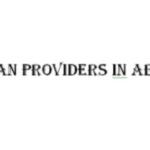Wisdom tooth removal is a common dental procedure, often necessary to prevent pain, infection, or crowding. But the big question is to answer is; what is wisdom tooth removal cost without insurance? would it be affordable?
However, the cost of the procedure can be a significant concern, especially if you don’t have dental insurance.
In this article, we’ll explore the costs associated with wisdom tooth removal, the factors that influence pricing, and practical tips for managing expenses without insurance.
Whether you need a simple extraction or a more complex surgical procedure, understanding the financial implications is essential.
We’ll also cover ways to reduce costs and ensure you receive the care you need without breaking the bank.
How much does wisdom teeth removal cost without insurance?

The cost of wisdom teeth removal without insurance can vary widely depending on several factors, but you can generally expect to pay:
- Simple Extraction: $75 to $250 per tooth.
- Surgical Extraction (impacted teeth): $225 to $600 per tooth.
- Full Mouth Extraction (all four teeth): $1,000 to $3,000.
These costs include the dentist’s or oral surgeon’s fees and standard anesthesia. However, additional fees for consultations, X-rays, or advanced sedation methods can increase the total bill.
For those requiring extensive procedures, the total cost may exceed $5,000 in some cases, particularly when complications arise.
What Factors Affect How Much You’ll Pay for Wisdom Teeth Removal?
Condition of Your Teeth
The condition of your wisdom teeth significantly impacts the cost. Teeth that are fully erupted and easy to extract will cost less than those that are impacted or partially erupted, as these require surgical intervention.
Impacted teeth may involve additional imaging and a longer procedure time, which increases the overall expense.
Number of Teeth Needing Extraction
If you need all four wisdom teeth removed, the total cost will naturally be higher than for a single tooth extraction.
Dentists or oral surgeons may offer a discount for multiple extractions performed in one session, which can reduce the per-tooth cost slightly.
Type of Anesthesia
The type of anesthesia or sedation you choose can influence costs:
- Local Anesthesia: Included in the base price and sufficient for simple extractions.
- Nitrous Oxide (Laughing Gas): Adds $40 to $100 and helps ease anxiety.
- IV Sedation: Costs $250 to $800, commonly used for surgical extractions.
- General Anesthesia: Ranges from $400 to $1,000 and is often reserved for highly complex cases or nervous patients.
Your Age
Younger patients typically pay less for wisdom tooth removal because their teeth are easier to extract. As you age, the roots grow deeper, and the surrounding bone becomes denser, making the procedure more complex and expensive.
Older patients may also face a longer recovery period, adding to potential costs for follow-up care.
Where You Live
The cost of dental care varies by location. Urban areas with a higher cost of living generally have higher dental fees compared to rural areas.
For example, wisdom tooth removal in metropolitan cities like New York or Los Angeles may cost significantly more than in smaller towns or rural regions.
Will Insurance Cover the Full Cost of Wisdom Teeth Removal

Insurance coverage for wisdom teeth removal depends on your dental plan. Many plans cover a portion of the costs, particularly if the procedure is deemed medically necessary.
However, most insurance policies only cover a percentage (e.g., 50%-80%) of the procedure after you meet your deductible. Patients without dental insurance must pay the entire cost out of pocket.
It’s also important to note that certain dental plans may have annual caps, typically ranging from $1,000 to $2,000. If your procedure exceeds this limit, you’ll need to cover the remaining balance yourself.
Checking with your insurance provider beforehand can help you understand what portion of the costs will be covered.
What Can You Expect to Pay Out of Pocket for Wisdom Teeth Removal?
Potential Issues That Cost Extra
In addition to the base cost of wisdom tooth removal, several factors can lead to additional expenses, such as:
- Pre-Operative Consultations: $50 to $200, depending on the complexity of your case.
- Panoramic X-Rays: $100 to $250 to assess the position and condition of your teeth.
- Post-Operative Medications: $20 to $50 for antibiotics and pain relievers.
- Complications: Infections, dry sockets, or nerve damage may require follow-up visits, which can add $100 to $500 to your total costs.
Additionally, specialized equipment or procedures, such as bone grafting for severe extractions, can add significant expenses, sometimes reaching $1,000 or more.
How Can You Lower the Cost of Wisdom Teeth Removal?

Reducing the cost of wisdom teeth removal is possible with a bit of research and planning. Here are some tips:
- Visit Dental Schools: Many dental schools offer discounted services performed by supervised students. While the procedures take longer, the savings can be substantial.
- Seek Community Health Clinics: Non-profit organizations often provide affordable dental care to those in need. Some clinics may charge on a sliding scale based on your income.
- Ask About Payment Plans: Some dental offices offer financing options or payment plans to help spread the cost over time. Third-party providers like CareCredit can also assist.
- Shop Around: Get quotes from multiple dentists or oral surgeons to compare prices. Don’t hesitate to ask for itemized estimates to understand what’s included.
- Consider Dental Discount Plans: These membership-based plans offer reduced rates for dental procedures, including wisdom tooth removal, at participating providers.
Frequently Asked Questions
How much does it cost to remove wisdom teeth without insurance?
The cost varies but generally ranges from $75 to $600 per tooth, depending on the complexity of the extraction. Full-mouth extractions can cost $1,000 to $3,000 or more.
Can I avoid having my wisdom teeth removed?
If your wisdom teeth are not causing pain, infection, or alignment issues, removal may not be necessary.
However, regular dental check-ups are essential to monitor their condition. Dentists can identify potential problems before they arise.
Is it cheaper to remove all four wisdom teeth at once?
Yes, many dentists offer discounts for removing all four teeth in a single session, reducing the overall cost compared to multiple visits. However, this approach may require more significant upfront payment.
Conclusion
Wisdom tooth removal without insurance can be a significant expense, but understanding the costs and factors involved can help you plan accordingly.
By exploring affordable care options, comparing quotes, and leveraging payment plans, you can manage the financial burden while ensuring your oral health.
From pre-operative consultations to post-operative care, being informed about potential expenses and how to reduce them is key to a smooth experience.
Whether you’re facing a simple extraction or a more complex surgical procedure, taking proactive steps will help you achieve the best outcome without unnecessary financial strain.










